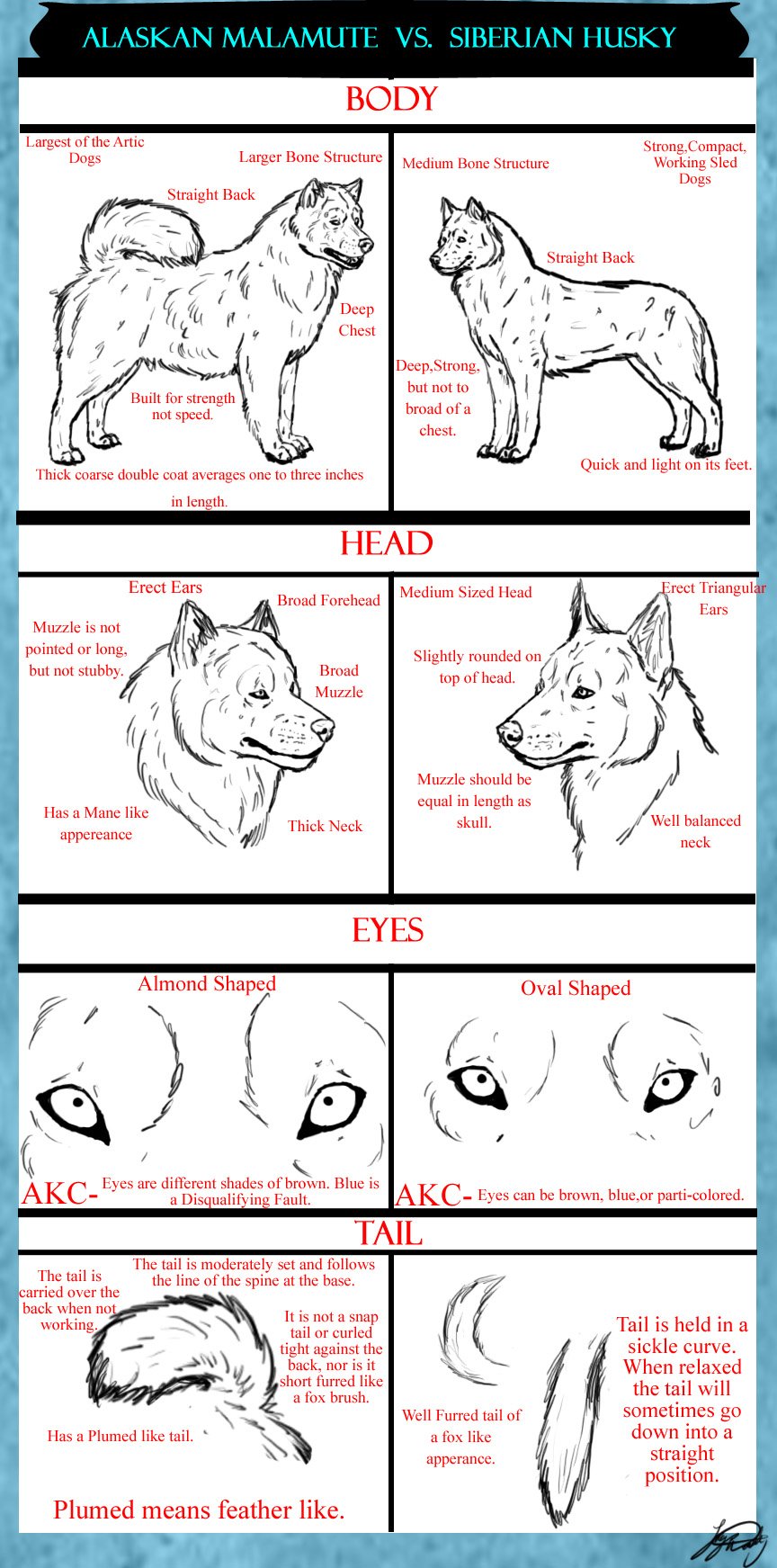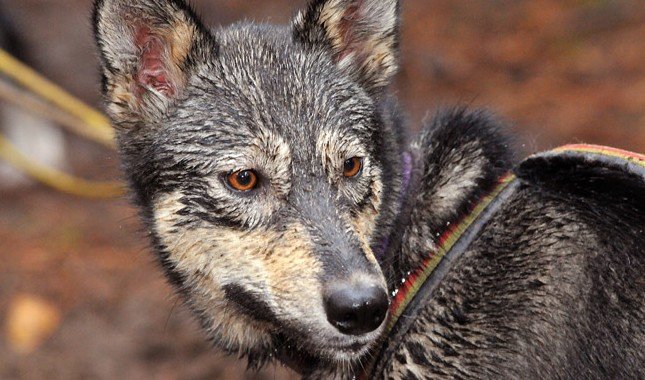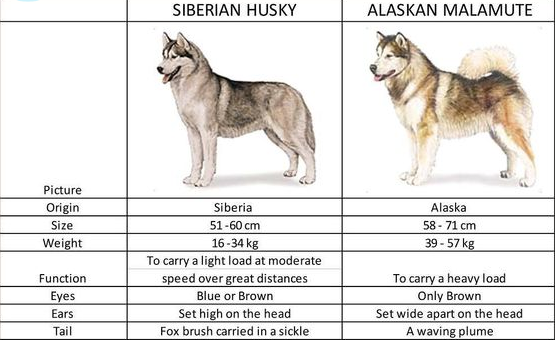Some dogs look similar and for an untrained eye, it’s not easy to tell the difference between some dog breeds. The Alaskan Malamute, Siberian Husky and Alaskan Husky may resemble each other, but there are differences between them. Here there are some Difference between Siberian Husky Alaskan Malamute and Alaskan Husky.
Siberian Husky
The Siberian Husky has roots in Siberia where the breed was used by semi-nomadic tribes called the Chukchi people. When forced to expand their hunting grounds and hunt farther from home, they developed a dog with endurance to go great distances while pulling a light load at a moderate speed in harsh weather conditions.
The breed was developed to preserve needed energy to stay warm. In 1909, the first Siberian Huskies arrived in Alaska as racing dogs. At 35 to 60 pounds and 20 to 23.5” at the shoulders, the Sibe is smaller boned than the Malamute.
They can have brown eyes, one brown and one blue, both blue, green or parti-colored eyes. The head is smaller and not as broad as the Malamute, and their eyes and ears are set closer together.
When on alert, the bushy tail is carried in a sickle shape that drops lower when the dog is relaxed. Because they are pack animals, the Siberian Husky gets along well with other dogs. He is stubborn, intelligent, confident, independent and loving with those who have earned his respect and trust.
An opportunistic escape artist, a Sibe can squeeze through the smallest hole or quickly dig underneath any fence. Once he’s out, this dog will run to his heart’s content. Do not let him off leash – his prey drive will kick in if he sees anything move, like the neighbor’s cat.
Alaskan Malamute
The Alaskan Malamute is the state of Alaska’s official mascot, and one of the oldest of the northern sled dogs. Named after the Inuit tribe Mahlemuts, the nomadic people of Alaska used this powerful breed for centuries to hunt seals and pull heavy sleds to move supplies and people throughout the Arctic region.
Today the breed looks much like it did 4,000 years ago. The Malamute is taller and heavier than the Siberian Husky. The dog stands 23 to 25” at the shoulder and weighs 75 to 85 pounds, though it’s not unusual for a muscular male to hit 100 pounds.
The Malamute has brown eyes and a broad head with the ears set wide apart. His bushy tail is carried over his back. Because the Malamute is heavier than a Husky, he is less likely to jump a fence, and will use his powerful paws to dig out instead.
This breed should not be let off his leash; he has a high prey drive and loves to run. He can be gender aggressive with same gender dogs, but is affectionate with his human family. This is an intelligent, confident and stubborn breed.

Alaskan Husky
The Alaskan Husky is a true sled dog that’s a type of dog rather than a specific breed, and not recognized by any kennel club. The Malamute and Siberian Husky are purebreds and recognized by the American Kennel Club.
The Alaskan Husky was bred solely for working ability, not appearance. Breeders of this dog didn’t care what he looked like as long as he could pull his weight, so Alaskan Huskies are varied in their appearance.
For hundreds of years Inuit people and mushers bred dogs with other canines found in villages, and there is no specific breed standard that dictates breeding practices. They needed a dog that was smart and could run hard and fast with the strength to pull heavy loads.
The dog’s coat is mostly short to medium in length with an undercoat. Alaskan Huskies are long legged with a lean body, deep in the chest, pointy ears, a tail that curls over the back and usually brown eyes. They weigh around 35 to 50 pounds and are taller than the Siberian Husky, although their height can vary.
Some resemble a cross between the Malamute and Sibe, and others look more wolf like. The Alaskan Husky is faster than the Malamute or Siberian Husky.
Despite their differences, these three dog breeds do have some things in common. They can be difficult to train because they are independent and willful. They’re intelligent working dogs who learn at their own speed, not necessarily at yours. All three have a thick double-coat. They have a high prey drive and are escape artists. They are sled dogs of the North, born to run, which they all love to do.

Source: Canidae/ Linda Cole.
Featured Image Credit: Deviantart
